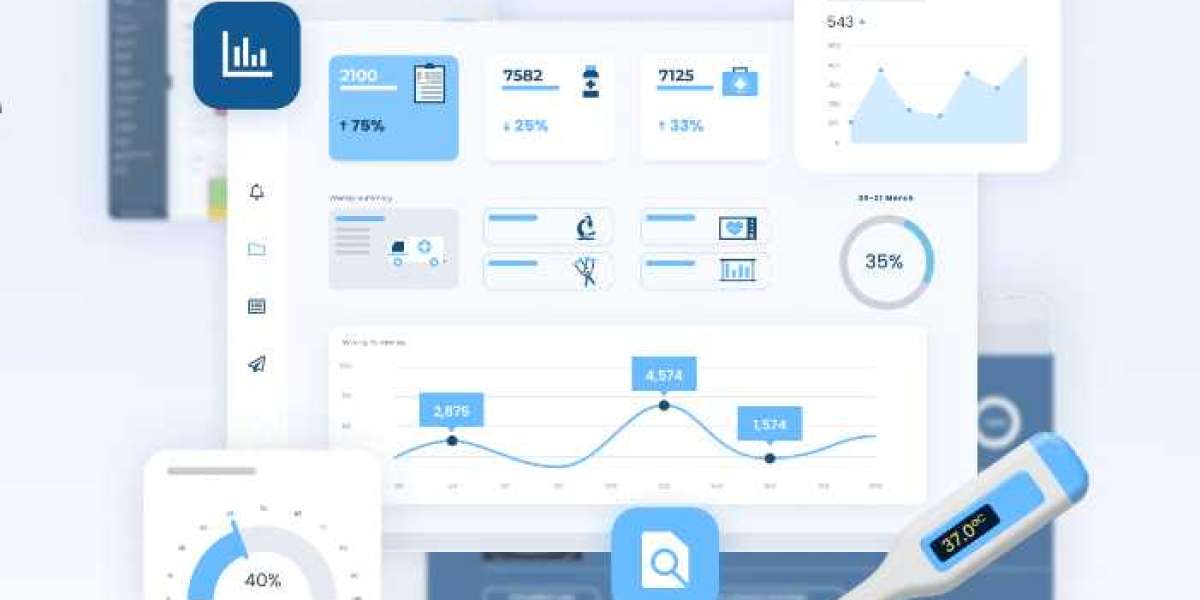In today’s fast-paced healthcare environment, pharmacies are under increasing pressure to deliver high-quality patient care while managing a myriad of operational tasks. The complexity of pharmacy operations—ranging from prescription processing and inventory management to regulatory compliance and patient communication—demands sophisticated solutions to ensure efficiency and accuracy. Pharmacy management software (PMS) has emerged as a transformative tool, offering a suite of features designed to streamline workflows and enhance operational efficiency.
Understanding Pharmacy Management Software
Pharmacy management software is an integrated platform designed to assist pharmacies in managing their day-to-day operations. It encompasses various functionalities such as prescription processing, inventory management, patient records, billing, and reporting. By automating routine tasks and providing real-time data, PMS enables pharmacies to optimize their operations, reduce errors, and improve overall patient care.
Key Features of Pharmacy Management Software
Prescription Processing
One of the core functions of pharmacy management software is prescription processing. PMS systems automate the entire prescription lifecycle, from receiving and verifying orders to dispensing medications and managing refills. Features typically include:
- E-Prescribing: Enables healthcare providers to send prescriptions electronically, reducing the risk of errors associated with handwritten prescriptions and improving processing speed.
- Drug Interaction Checks: Automatically alerts pharmacists to potential drug interactions, allergies, or contraindications, enhancing patient safety.
- Automated Refill Management: Tracks refill dates and automates the refill request process, ensuring patients receive their medications on time.
Inventory Management
Efficient inventory management is critical for maintaining optimal stock levels and minimizing wastage. Pharmacy management software offers:
- Real-Time Inventory Tracking: Monitors stock levels in real-time, providing alerts when inventory is low and facilitating timely reordering.
- Automated Ordering: Integrates with suppliers to automate the ordering process based on predefined thresholds, reducing manual effort and ensuring inventory availability.
- Expiry Date Management: Tracks medication expiration dates and alerts staff to impending expirations, helping to prevent dispensing expired products.
Patient Records and Communication
Managing patient records and communication is essential for delivering personalized care and maintaining regulatory compliance. PMS systems include:
- Electronic Health Records (EHR) Integration: Integrates with EHR systems to provide a comprehensive view of a patient’s medical history, ensuring accurate medication dispensing.
- Patient Profiles: Stores detailed patient information, including medication history, allergies, and preferences, enabling pharmacists to offer tailored advice.
- Automated Reminders: Sends reminders for medication refills, upcoming appointments, and health check-ups, enhancing patient adherence to treatment plans.
Billing and Claims Management
Efficient billing and claims management is crucial for ensuring timely reimbursement and financial accuracy. Pharmacy management software offers:
- Automated Billing: Generates and processes invoices automatically, reducing manual data entry and minimizing errors.
- Claims Submission: Facilitates electronic claims submission to insurance providers, streamlining the reimbursement process and reducing claim denials.
- Financial Reporting: Provides detailed financial reports and analytics, aiding in budgeting, forecasting, and financial decision-making.
Regulatory Compliance
Compliance with regulatory requirements is a fundamental aspect of pharmacy operations. PMS systems help pharmacies meet these requirements by:
- Maintaining Records: Ensures accurate and secure record-keeping for prescriptions, inventory, and patient interactions.
- Audit Trails: Provides detailed audit trails of all transactions and activities, supporting compliance with regulatory standards and facilitating audits.
- Data Security: Implements robust security measures to protect sensitive patient and financial data, ensuring adherence to data protection regulations.
How Pharmacy Management Software Enhances Efficiency
Reduces Manual Effort
By automating routine tasks such as prescription processing, inventory management, and billing, pharmacy management software significantly reduces the manual effort required by pharmacy staff. This automation minimizes the risk of human error and frees up time for pharmacists to focus on patient care and other critical tasks.
Improves Accuracy
Accurate prescription processing and inventory management are essential for patient safety and operational efficiency. PMS systems provide built-in checks and balances, such as drug interaction alerts and automated inventory tracking, which enhance accuracy and reduce the likelihood of errors.
Streamlines Workflow
Pharmacy management software integrates various functions into a unified platform, streamlining workflow and improving coordination among pharmacy staff. This integration facilitates seamless communication, data sharing, and task management, resulting in a more organized and efficient operation.
Enhances Patient Care
With access to comprehensive patient records and automated communication tools, pharmacists can offer more personalized and proactive care. By leveraging patient data and sending timely reminders, PMS systems help improve medication adherence and overall patient outcomes.
Optimizes Inventory Management
Effective inventory management is crucial for maintaining stock levels and reducing wastage. Pharmacy management software’s real-time tracking and automated ordering features ensure that pharmacies have the right medications in stock while minimizing overstock and expirations.
Facilitates Regulatory Compliance
Compliance with regulatory requirements is essential for avoiding legal issues and maintaining operational integrity. PMS systems support compliance by providing accurate record-keeping, audit trails, and data security measures, helping pharmacies meet regulatory standards and prepare for audits.
Enhances Financial Management
Efficient billing and claims management are vital for maintaining financial health and ensuring timely reimbursement. Pharmacy management software’s automated billing and claims submission features streamline these processes, reduce errors, and improve financial accuracy.
Provides Data-Driven Insights
Data analytics is a powerful tool for optimizing pharmacy operations. PMS systems offer detailed reports and analytics on various aspects of pharmacy performance, such as inventory levels, prescription volumes, and financial metrics. These insights support informed decision-making and continuous improvement.
Case Studies: Real-World Examples of PMS Impact
Case Study: Urban Pharmacy Chain
An urban pharmacy chain implemented a comprehensive pharmacy management software system to address inefficiencies in prescription processing and inventory management. The software’s automation features reduced prescription processing time by 30%, minimized inventory shortages and overstock situations, and improved overall patient satisfaction. The pharmacy chain also experienced a 25% increase in operational efficiency and a 20% reduction in medication errors.
Case Study: Rural Independent Pharmacy
A rural independent pharmacy faced challenges with manual billing and claims management. By adopting pharmacy management software, the pharmacy streamlined its billing process, reducing manual data entry and accelerating claims processing. The result was a 40% reduction in claim denials and a 15% increase in reimbursement speed. Additionally, the software’s automated reminders improved patient medication adherence and contributed to better health outcomes.
Case Study: Specialty Pharmacy
A specialty pharmacy dealing with complex medication regimens and high-value drugs implemented a PMS system to enhance inventory management and patient care. The software’s real-time tracking and automated ordering features helped the pharmacy maintain optimal stock levels and reduce wastage. The integration with EHR systems enabled more accurate and personalized patient care, resulting in a 35% improvement in patient satisfaction and a 25% reduction in medication-related complications.
Challenges and Considerations
While pharmacy management software offers numerous benefits, its implementation and use can present challenges. Some considerations include:
Cost and Budgeting
The cost of pharmacy management software can vary based on features, size of the pharmacy, and vendor. Pharmacies should carefully evaluate their budget and choose a solution that provides the best value while meeting their specific needs.
Training and Support
Effective use of pharmacy management software requires proper training for pharmacy staff. Ensuring that staff members are well-trained and have access to ongoing support is crucial for maximizing the software’s benefits and addressing any issues that may arise.
Data Security and Privacy
Protecting patient data and ensuring compliance with data protection regulations is essential. Pharmacies should choose software vendors that prioritize data security and offer robust security measures to safeguard sensitive information.
Integration with Existing Systems
Integrating pharmacy management software with existing systems, such as EHRs and inventory management tools, can be complex. Pharmacies should work closely with vendors to ensure seamless integration and minimize disruptions to operations.
Future Trends in Pharmacy Management Software
Artificial Intelligence and Machine Learning
The integration of artificial intelligence (AI) and machine learning (ML) into pharmacy management software is expected to enhance predictive analytics, optimize inventory management, and improve decision-making. AI-powered tools can analyze vast amounts of data to identify trends, predict medication needs, and personalize patient care.
Telepharmacy Integration
With the growth of telehealth and remote consultations, telepharmacy is becoming an important component of pharmacy management software. Integration with telepharmacy platforms will enable pharmacies to provide remote medication management, consultations, and support, expanding access to care and improving patient outcomes.
Blockchain for Data Security
Blockchain technology has the potential to revolutionize data security in pharmacy management. By providing a decentralized and immutable ledger for transaction records, blockchain can enhance transparency, traceability, and security in pharmacy operations.
Enhanced Patient Engagement
Future pharmacy management software may offer more advanced patient engagement features, such as personalized health recommendations, interactive medication management tools, and improved communication channels. These enhancements will further support patient adherence and overall health outcomes.
Conclusion
pharmacy management software development plays a pivotal role in modernizing pharmacy operations and enhancing efficiency. By automating routine tasks, improving accuracy, and streamlining workflows, PMS systems enable pharmacies to deliver high-quality patient care while optimizing their operations. As technology continues to evolve, pharmacy management software will likely incorporate new features and innovations, further advancing the capabilities and impact of these essential tools.
Investing in pharmacy management software is not just a technological upgrade; it is a strategic decision that can drive significant improvements in efficiency, accuracy, and patient satisfaction. For pharmacies looking to stay competitive and provide exceptional care, leveraging the power of pharmacy management software is a crucial step toward achieving operational excellence and meeting the demands of today’s healthcare environment.








